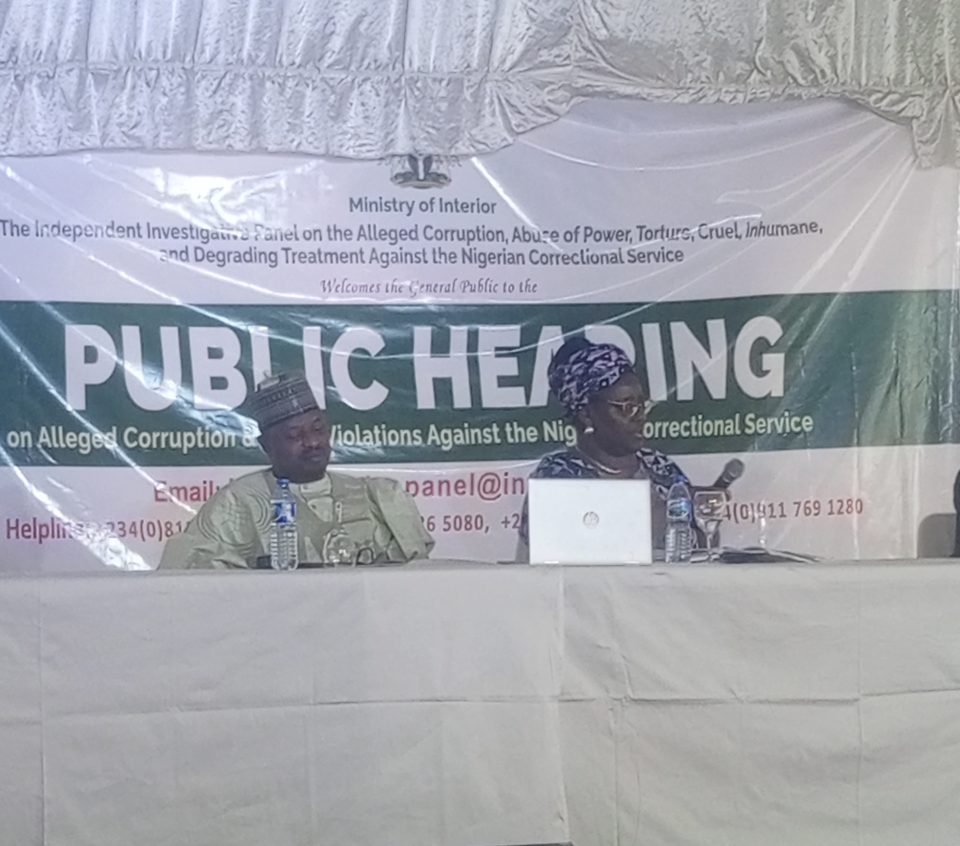Associate Professor Uju Agomo has emphasised the key role the media has to play as part of the collective effort required to bring about urgently needed changes in the correctional services sector.
Uju Agomo, an associate professor of Criminology and Security Studies, who is the President of Prisons Rehabilitation & Welfare Action (PRAWA) as well as the Secretary to the Independent Investigative Panel on Alleged Corruption and other Violations against the Nigerian Correctional Service stressed the need for media oartnership at the panel’s public hearing held in Abuja recently.
In an interview with journalists after the completion of the 2- day public hearing, she said,”Yes, I think the media is so key. Part of what we would hope to have is what is happening (right now)- (a media interface) immediately after each session because everyday has it’s own peculiarities.
“We want you to really be engaging towards the process. The panel would be open to have media roundtable each and everytime you require it but we want full participation during our public hearings. We want you to also use your various platforms to encourage Nigerians to engage this process first of all for them to make submissions of their complains as well as also be willing to attend physically or virtually the public hearings.
The Audit reports which covered correctional facilities in Adamawa, Anambra, Edo, FCT ( Suleja & Keffi) and Lagos were a huge revelation of maladministration, corrupt practices, inhuman unhygienic conditions, prolonged awaiting trial inmates, lack of medical professionals or facilities, delay in assignment of cases and more.
Assessing the reports and the process of admitting them she underscored the open and transparent manner in which it was carried out.
“It was clearly an open process and this is exactly what we want to achieve whereby the whole notion of transparency would be seen.
“We want the people of Nigeria to participate we are not hoarding any information so if you are following through you would hear every raised issues of corruption and what those issues are and why, so that by the time we start talking about recommendations everybody would understand why the recommendations that are so made are being made, because we are looking at recommendations that need to be comprehensive and far reaching.
“After each submission there are also opportunities for the members of the public to ask direct questions so anything that is not clear to them they have an opportunity to ask and then you will recall that even in terms of a receiving the report it is on the basis of a motion raised by the citizens that are here that would enable the panel decide whether to receive the report or not and you know throughout all the ones we have received we have not had anyone opposing the motion for us to receive the report.
Speaking further, Agomo said, “we want a correctional service that all of us would be proud of in Nigeria. We want a country that all of us would be proud of and justice is so key,
and everyone understands the fact that the correctional service is just like the barometer to know everything that happens within the Justice system.
“I think it’s quite an eye opener for a lot of people and I’m sure that so many of the things that perhaps many did not know about especially for those that are not used to going to custodial centers they would be able to.
“If you know people whose rights have been violated by the correctional service you should encourage them to bring their complains to the panel.
Agomo, who is also the panel’s Secretary gave an insight into the timing and format of the next public hearing.
“Do remember that this is the very first stage of the public hearing. We will continue the public hearing session in January and this would start from January 13th and hopefully by that time we are planning to have the schedule of 1-2 weeks stretch for the public hearings and those sessions of the public hearing will only have one state from the first phase that is outstanding which is Abia state in terms of the report.

